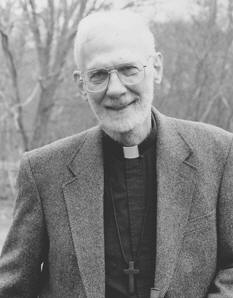In the Name of the Father and of the + Son and of the Holy Spirit
Book learning only gets you so far. Same for a Mensa membership. Same for street smarts as well. The world hems and haws about knowledge and skills. Yet these only do so much before you throw up your arms in disgust. The more you learn, the more you realize you know nothing. Mankind still has not learned to burn water, to cure cancer, or end world hunger. Even when amazing discoveries take place, there is only brief, superficial, earthly gain. The soul cannot delight in it. There’s no comfort in death because of it. No matter how much you learn, these questions remain, “How do I get to God? How am I saved?” Human wisdom still leaves you in a lurch.
Today’s Epistle boasts of an insight that deserves the name “wisdom” even if it is despised by the world. This wisdom surpasses and exceeds all human knowledge because it rests on divine reason. This wisdom brings salvation. The highest, most blessed knowledge is to know the love of Christ.
The love of Christ is making His Father our Father once again in Jesus taking on flesh. He bears our sin in His bitter suffering and death, reuniting heaven and earth, God and man, families in heaven and on earth. We wandering renegades again are called children of God.
Those who are children of God by faith in Jesus Christ, in whose hearts Christ dwells, the fullness of the Triune God comes to them and pitches His tent in them. Jesus, the King of heaven, lives in poor mankind’s heart. What love!
Jesus joins together a holy Church from all the faithful on earth. He builds a dwelling place not made by human hands that spread in all directions over the earth. In this dwelling place reside both Jews and Gentiles, all people who confess Jesus as Lord. This dwelling place stands as a monument of the incomprehensible love of Jesus in the world. Jesus is still working on this building. We reside in a work in progress. Christ lives in this magnificent temple with His grace and love. As Saint Peter says in his first epistle: As you come to him, a living stone rejected by men but in the sight of God chosen and precious, you yourselves like living stones are being built up as a spiritual house, to be a holy priesthood, to offer spiritual sacrifices acceptable to God through Jesus Christ.
The knowledge of the love of Christ is the highest knowledge that far surpasses all human thinking and comprehension. We owe our entire salvation to it. It has purchased and built a holy Church on earth and has brought us to her.
Whoever has this faithful knowledge has entered into a new relationship with God. He has become a new creation that is no longer ruled by the evil spirit of hell, but by the Spirit of God. He knows he is in possession of the greatest happiness not found in this world. He is God’s child. He is an heir of salvation.
The more you grow in this knowledge and delight in it, the more you are filled with the fullness of God. God’s blessings gush over you. Jesus Christ has blessed [you] in Him with every spiritual blessing in the heavenly places. You have comfort in every affliction. You have the certainty of being a child of God in your Baptism. You have His grace, His peace, and the inheritance of eternal life.
Because you know the love of Christ, you are also willing and able to endure all tribulations for the sake of the name of Jesus. You are able willingly to suffer and not to be ashamed of every tribulation, because God uses them to strip you of those things you though needful in order to direct you to the one thing that is needful: the blood and righteousness of Jesus Christ. This is why Saint Paul is able to say, I ask you not to lose heart over what I am suffering for you, which is your glory. Paul suffered much, yet His sufferings are hidden in Christ’s sufferings. Paul’s burdens are made light in Jesus.
Knowing the love of Christ also drives you to let your entire life be for the praise of Jesus’ power and grace working in you in receiving the Gifts Jesus gives you in His house every week. As you are fed here in Word and Supper, you are sustained in His forgiveness and life until you finally enter into the triumphant Church who rests in Christ awaiting the Day of Resurrection.
You could be the most brilliant quantum physicist or the richest man in seven counties. These only take you so far this side of eternity. You could also be homeless, penniless, and one major medical mishap away from being bankrupt. Yet if you know and believe the love of God that is in Jesus Christ, you have everything. Your knowledge is perfect and holy. This is not to say you shouldn’t learn anything in this life. Read, study, and learn. Do not place your trust in what you read, study, and learn about earthly life. Your hope against hope is in the Lord, Who shows His love by sending His Son to live the perfect life in your place, suffer and die in your place, and rise from the grave in order that you shall rise from the grave. The saying is trite, but true: No Jesus, no peace. Know Jesus, know peace. Believe it for His sake.
In the Name of the Father and of the + Son and of the Holy Spirit

